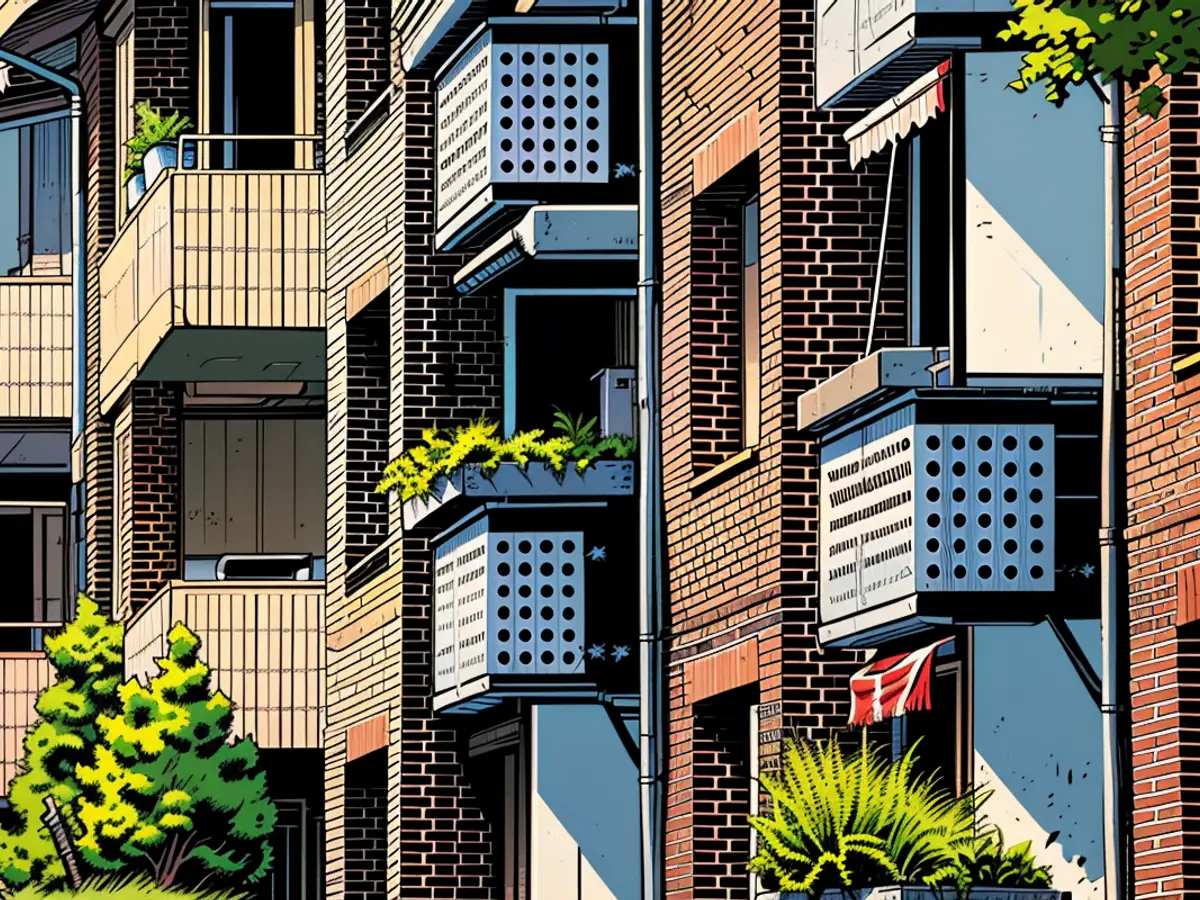- Senate initiates overhaul of property-based levy system.
The Hamburg government, under its red-green Senate, has proposed reforming the real estate tax with revised rates. This change, known as the Real Estate Tax Adjustment Act, is scheduled for parliamentary approval in October, as per the tax department's announcement. The new real estate tax will become payable at the end of April 2025. This move follows a 2018 ruling by the Federal Constitutional Court, labeling the previous nationwide real estate tax system as unconstitutional.
For the first time since 2005, property tax rates in residential areas (property tax B) in Hamburg will jump from 540 to 975 percent, the authority has announced. A shift to a 100 percent rate for agriculture and forestry (property tax A) is planned, replacing the current 225 percent rate. An exceptionally high tax rate of 8,000 percent is proposed for undeveloped but buildable land (property tax C) to discourage speculation and encourage housing development.
The intention is for the revised real estate tax to maintain its revenue-neutral status. Existing individual exemptions for residential properties, standard residential zones, subsidized, or heritage-protected flats will remain intact. Moreover, the hardship clause, previously applicable only to commercial properties, will expand to cover residential properties as well. The appraisal base for usable space is set at 0.87, while the residential area remains at 0.7.
Finance Senator Andreas Dressel labeled the real estate tax reform as straightforward and fair. Despite anticipating transfers of cost due to the system transformation, Dressel emphasized that the new property tax B, relevant for most residents, remains revenue-neutral overall and in both residential and commercial property zones. A municipality-wide information campaign is scheduled for the fall.
In contrast, the Left faction in the Hamburg Parliament deems the reform unfair. According to their budget representative, David Stoop, under the proposed tax rates, the real estate tax burden will significantly increase, particularly on the outskirts where property values have traditionally been more favorable. In some instances, the burden will even multiply. "Commercial operators with larger areas in the outskirts may face a substantial real estate tax burden," Stoop stated.
Stoop attributes this disparity to the lack of differentiation between the two residential areas, failing to accurately reflect the property's value in Hamburg. He also points out that commercial areas are not differentiated at all: "A car repair shop in Bergedorf pays the same per square meter of usable space as a bank on the Ballindamm." Stoop emphasizes that this is unfair and advocates for taxation that is more closely tied to market value.
Based on previous examples from the tax department, owners of a 100 square meter single-family home in a prime location with a plot size of 1,000 square meters will now pay 731 euros annually. In a normal location, the annual payment would amount to 646 euros. For a 100 square meter apartment in a normal location, 353 euros would be due. Tenants are indirectly affected as landlords can pass on the payment increase as ancillary costs. Hamburg currently collects around 510 million euros in real estate tax annually, with an expected collection volume remaining roughly the same.
The proposed real estate tax reform aims to maintain its revenue-neutral status despite revised rates, ensuring that existing individual exemptions remain intact. Some political factions, like the Left in Hamburg Parliament, argue that the new tax rates are unfair, particularly for property owners in areas with traditionally lower property values.
Despite the Left's concerns about the fairness of the proposed real estate tax reform, Finance Senator Andreas Dressel describes it as straightforward and fair, emphasizing that the new property tax B remains revenue-neutral for most residents.








